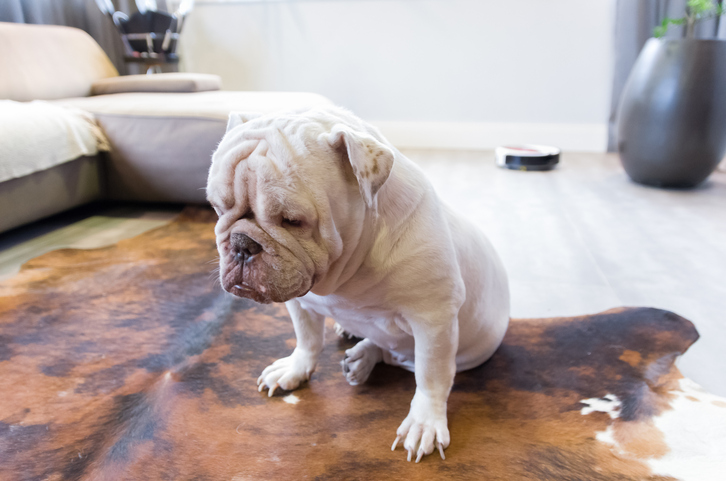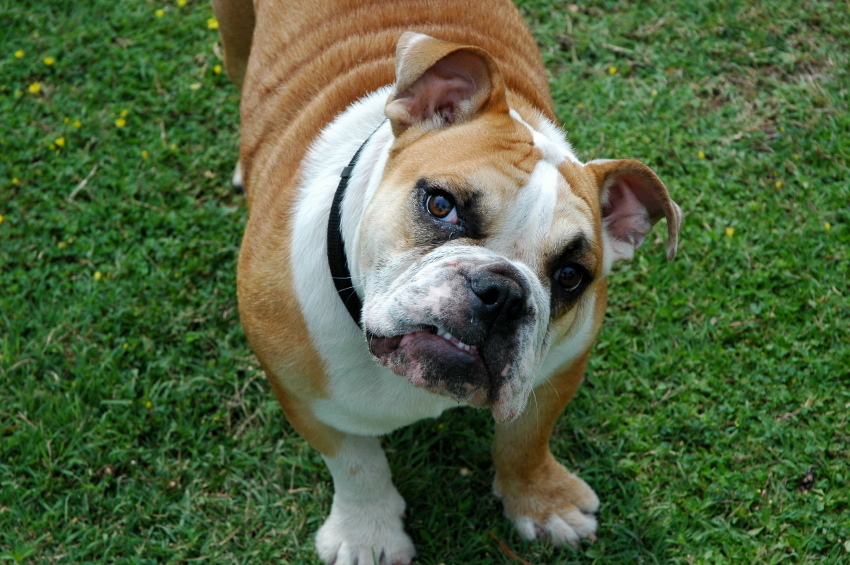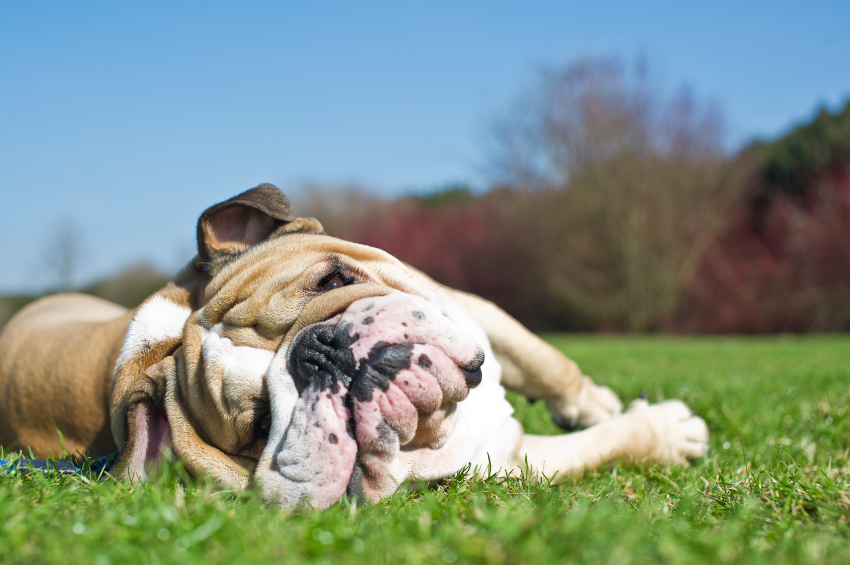Does your clingy Bulldog remain unusually aloof lately? Such changes in behavior are signs of stress in Bulldogs. Like in humans, stress can negatively affect your Bulldog’s health.

Your Bulldog can get stressed due to various reasons, including the following.
- Changes in routine
- Presence of unfamiliar items, people, or pets at home
- Moving to new homes
- Loud noise
- Lack of exercise or mental stimulation
- Changes in your mood and behavior
- Anxiety
Stress can cause your pet’s immune function to decline while increasing the risk of heart diseases, diabetes, and skin problems. For this reason, it is important to identify the signs of stress in your Bulldog and relieve it as soon as possible.
Signs of Stress in Bulldogs
#1 Lip/Nose Licking
Dogs have their own languages and they introduce themselves to their fellow dogs in their own ways. But some dogs are simply uncomfortable when strangers and unfamiliar dogs make contact with them without having a calm and proper introduction.
Your Bulldog may lick his nose and lips during uncomfortable social situations. He may be intimidated by the presence of new people or pets in your house and even in other places.
#2 Whale Eye
Whale eye refers to your pet’s body language where he shows the whites of his eyes. He may change the direction of his head but his eyes remain fixed on you or something. Some Bulldogs have naturally buggy eyes so it may be a bit difficult to determine whether they are doing the whale eye or not.
When your Bulldog does the whale eye, he is telling you or the individual near him that he is stressed and uncomfortable. Any further provocation can make him snap or bite.
#3 Panting
Bulldogs are naturally sensitive to heat and they pant a lot to regulate their body temperature. However, if you notice that your pet is panting even when it isn’t warm, there is a high chance that he is stressed out and is feeling uncomfortable.
#4 Yawning
Dogs yawn for different reasons. Sometimes, they yawn when they are tired and sleepy. They also display this behavior to empathize with their owners’ sleepiness, exhaustion, or feelings.
However, yawning is also a sign of stress in Bulldogs. Yawning can be his way of dealing with stress, nervousness, anxiety. You may see your Bulldog display this body language at the veterinary clinic or during uncomfortable social situations.
#5 Pinned Ears
Your Bulldog holds his ears naturally when is at a normal, relaxed state. But when something stresses, frightens, or makes him uneasy, the muscles around his ears become tense and slightly pulled back.
#6 Other Signs of Stress in Bulldogs
Aside from the signs mentioned above, your Bulldog may also show the following symptoms when he is stressed.
- Refusal to eat
- Excessive drooling
- Aloofness
- Destructive behavior
- Pacing
- Whimpering
How to Relieve Stress in Bulldogs
If you think your Bulldog is stressed, then the first thing you should do is determine what is causing him to feel that way and address it. Here are tips to help your Bulldog deal with stress.
#1 Stick to a daily routine as much as possible
Dogs are creatures of habit. They learn heavily through their familiarization. For this reason, any change in routine can scare, stress, or confuse your Bulldog. Sticking to a familiar routine – from his time of sleep, walk, play time, and meal time – keeps his mind at ease.
#2 Introduce new people and pets
Before letting new pets or humans into your home, introduce them to you Bulldog on neutral grounds.
#3 Set up a “safe room” for your Bulldog
Halloween, Thanksgiving, Christmas, and other holidays that bring a lot of people in your home can be nerve-wracking for your pet. Keeping your Bulldog in a “safe room” helps him remain calm and stress-free during the celebrations and even during fireworks. You may also opt to crate train your Bulldog. Keep him inside the cage when people come over.
#4 Exercise your Bulldog
Exercise helps soothe your Bulldog’s stress and anxiety. It keeps your Bulldog’s body fit and his mind balanced. Note that not all physical activities are suitable for Bulldogs so it is best to determine which exercises work well for your pet.
#5 Reassure your Bulldog
Giving your Bulldog company during stressful situations helps him calm down. Petting and talking to him also helps him take his mind off from worries and ease muscle tensions.

